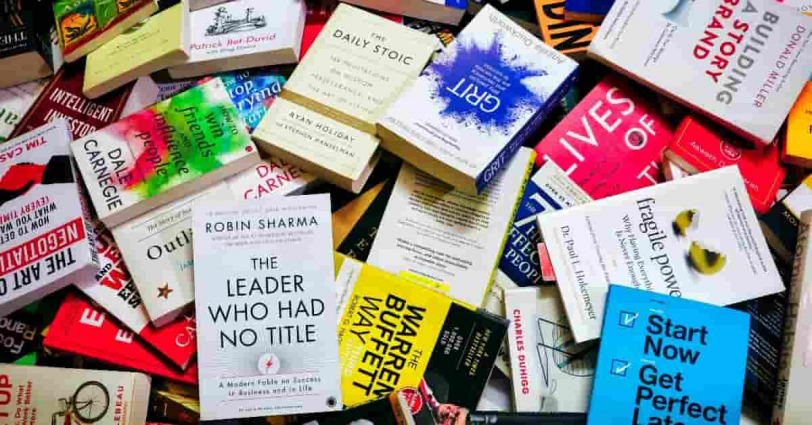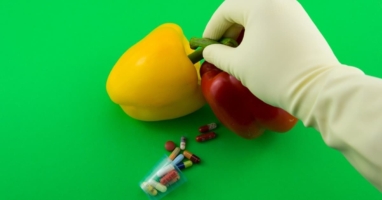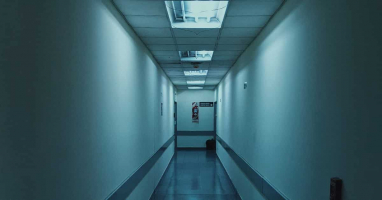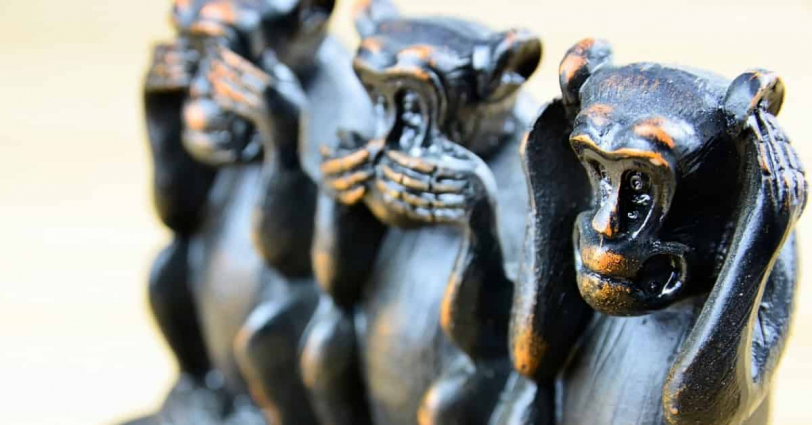I wrote this article in Japanese and translated it into English using ChatGPT. I also used ChatGPT to create the English article title. I did my best to correct any translation mistakes, but please let me know if you find any errors. By the way, I did not use ChatGPT when writing the Japanese article. The entire article was written from scratch by me, Saikawa Goto.
Introduction
Movies and books covered in this article

Three takeaways from this article
- The world is improving more than we think.
- It’s not the fault of the media or lack of education that we see the world as a worse place, but rather the way our brains work.
- Let’s understand correctly that we have been wrong so far, and let’s take this as an opportunity to take a new step forward.
Self-introduction article


Published Kindle books(Free on Kindle Unlimited)
“The genius Einstein: An easy-to-understand book about interesting science advances that is not too simple based on his life and discoveries: Theory of Relativity, Cosmology and Quantum Theory”
“Why is “lack of imagination” called “communication skills”?: Japanese-specific”negative” communication”
The quotes in the article were translated using ChatGPT from Japanese books, and are not direct quotes from the foreign language original books, even if they exist.
A Global Bestseller that Reveals How We Misunderstand the World as “Bad”

This is a rare book that is both a bestseller and a good book, selling all over world, with over a million copies sold in Japan alone, so you might think there’s no need for me to introduce it now. However, not all bestsellers are good books, and. Furtheremore, in my experience as a longtime bookstore employee, there are many good books that never become bestsellers.

I believe this book is one that many people should read because it’s both a bestseller and a good book. Normally, just knowing something is not enough to change the world, but this book argues that “human beings have various misconceptions, and they tend to perceive the world as worse than it actually is. If we stop such recognition, we can change the world.” In other word, this is a rare piece of knowledge that can change the world just by “knowing” it, and I think more people should read it.

In that sense, it is a great thing that this book has become a global bestseller.
13 Questions and the “Misunderstandings” They Reveal
“At the beginning of this book, there are 13 questions about the current state of the world. You can answer these questions online (the number of questions may differ). If you’re interested, please click on the link below to check it out.”

First, let me write about my results. Out of the 13 questions at the beginning of this book, I got all the first 12 wrong and only the last one right.
Actually, it is known that almost everyone around the world had similar results to mine. In an online survey conducted in 2017 targeting 12,000 people in 14 countries, the correct answer rate for the last question was remarkably high, while the first 12 questions were almost all incorrect. Like me, 15% of all respondents got all 12 questions wrong, and the overall average number of correct answers was only 2 out of 12.

To help you understand how low the correct rate is, let’s bring in a chimpanzee. Each question has three choices, so even if the chimpanzee answers randomly, there should be a 33% chance of a correct answer. In fact, there was a case where a chimpanzee was given bananas as a reward for answering, and the correct answer rate was close to 33%.

On the other hand, the human correct rate is only 2 out of 12 questions, which is 16.7%. In other words, humans are losing to chimpanzees.

Some people may suspect that the result is influenced by the fact that the survey includes people with low intelligence. They may think that the results could be different if only people with high intelligence are surveyed.
However, this point has been investigated and it is known that the results do not change even if only people with high intelligence are surveyed. Even people with high education or interest in international affairs did not perform much better than the overall average, and some medical professionals and Nobel Prize winners scored lower than the general public. This means that the difference is not based on intelligence or level of interest.

The creation of these 13 questions did not, of course, use any data kept in secret by a specific agency, but only public information that anyone can check online. In that sense, everyone is on an equal footing, and it is a topic that concerns anyone, regardless of their position.
These 13 questions were the starting point for the author. He began by asking students the questions and then found various opportunities to ask the same questions to business executives and government leaders, only to realize that their answers were consistently incorrect. This is where the author’s struggle began.

The Problem of “Perceiving the World Worse than it Actually is” Revealed by 13 Questions
The 13 questions ask about “the state of world hunger, healthcare, and wealth inequality,” among other things. After getting all 12 questions wrong except for the last one, I realized that I have been perceiving the world in the following way:
In the world, there are constantly wars, violence, natural and man-made disasters, corruption, and it’s becoming increasingly dangerous. The rich get even richer while the poor get even poorer, and poverty continues to increase. If we do nothing, natural resources will soon run out.

Do you ever feel the same way? It’s true that when you connect various information from the news and online media, it can create an image of the world like this.

The author calls this view of the world “overly dramatic view of the world.” This book points out that by “perceiving the world worse than it actually is,” various harmful effects may occur.

Then, why do we tend to see the world in such a negative light?
Initially, the author thought it was due to a lack of knowledge updates. In other word, it means that we learn knowledge at school as children, but that knowledge remains unchanged as we grow up, causing us to see the world as a negative place.

However, the author gradually realizes that while it is certainly not a negligible aspect, it is not the essential issue. And finally, the author comes to the conclusion that “this is a problem with the human brain.”
The human brain is the product of millions of years of evolution. Instincts that our ancestors needed to hunt and gather in small groups are built into our brains. (omission)Similarly, the instinct to make quick judgments and to seek out dramatic stories leads to an overly dramatic view of the world and misunderstandings about the world.
In other words, “estimating one’s surrounding environment to be worse than it actually is” was a necessary ability for humanity. Indeed, if the human brain has been making such judgments since ancient times, it can be explained.

The author, who came to realize this, would later fight against this “overly dramatic view of the world.” But first, let’s touch on the actual negatives that such a view of the world creates.
For example, in this book, there is a story about “sanitary napkins.” It’s a story about the mismatch between supply and demand.
In this book, the division of poverty levels in the world is introduced from Level 1 to Level 4. Roughly speaking, Level 1 is the “poorest class,” and Levels 2 and above are at a level where “necessary things are available to some extent on a daily basis.” Even at Level 4, it is at the level of “living on $32 or more a day,” and almost of all people in developing countries are supposed to fall into this Level 4 category.

Now, let’s talk about sanitary napkins. Unfortunately, those in poverty level 1 don’t have the money to spend on them, but those in level 2 and above can afford them just fine. In fact, a huge number of people have been able to move from level 1 to level 2-3 in the past few decades.
So, there is a huge potential demand for sanitary napkins from people in levels 2-3.
However, there are only sanitary napkins available for level 4 in the world. There are no sanitary napkins that people in levels 2-3 would find easy to buy in the first place.


Why don’t they exist? It’s because sanitary napkins manufacturers view “life standards of level 1-3” as being pretty much the same. They assume that people up to level 3 can’t afford to buy sanitary napkins anyway, so they only try to sell napkins to level 4 people.
However, according to this book, there are 5 billion people in total at levels 2-3, while only 1 billion people live at level 4. Simply by considering people at levels 2-3, the market can expand fivefold.
Have you heard of the incredible success story of developing “sanitary napkins for people who are by no means wealthy” in India? It has been made into a movie called “Pad Man,” and I highly recommend watching it (For more information, read the following article).

There is a reason why I chose to talk about “sanitary napkins” from the examples in this book. I consider that it would be easier to communicate the problem in a simple way, by making it a reality that the reality is that profit-seeking companies, who are likely searching for business opportunities every day, are losing profits due to their “overly dramatic view of the world.”
There are various problems in the world, such as poverty and hunger, and it is difficult to distinguish whether the reason why their solutions are not progressing is due to “overly dramatic view of the world” or simply “lack of interest.” However, if the story involves private companies, “lack of interest” cannot be the reason. That’s why I think it’s easy to judge that the reason why sanitary napkin manufacturers are overlooking the market for sanitary napkins is purely due to their “overly dramatic view of the world.”

In this way, “overly dramatic view of the world” is also related to business.
It is Important to Know that We are Not being “Shown” the World as Worse than it Actually is, But Rather We are “Seeing” it That Way

Some people may think that the cause of “overly dramatic view of the world” lies in the way the media reports. However, the author is assuming that such doubts are bound to arise.
Even if you feel like blaming the media for lying(it is not they are lying) or trying to implant a distorted worldview (even if they may be distorted, it’s usually not intentional), you shouldn’t give in to that impulse. Let’s also stop blaming experts for being too caught up in their narrow fields or for having wrong ways of thinking (although they may make mistakes, they usually act with good intentions).

In this book, there are “10 misconceptions” that humans tend to fall into, and one of them is the “culprit hunting instinct.” It’s the instinct that try to search for a “culprit” who caused something to happen when an event occurs. However, in this case of “overly dramatic view of the world,” there is no “culprit.” By asking the same 13 questions to media personnel and experts, the author concludes that they are simply “lacking knowledge.”


The author’s statement such as the following may make you feel that it’s indeed true.
It’s like using a friend’s photo instead of GPS to tour a foreign country to think that you can learn about the world based on what the media shows us.
Of course, there are some things that we can only learn from the media, such as refugees and wars that we can’t easily see for ourselves. However, fundamentally, we must have the attitude of “checking it for ourselves”. It may seem like an obvious argument, but it would be a perspective that we tend to forget when living in modern society.

At the end of this book, there is a sentence by one of the co-authors (the author’s daughter) that goes like this:
Through ‘Factfulness’, I want to convey to people that it is important not only to critically examine information but also to critically examine ourselves.
We tend to behave in various ways with the stance that “I am not at fault.” However, to correctly perceive the world, it is important to first realize the importance of “critically examining oneself,” which is pointed out throughout this book.

For example, it can be like this:
If we blindly agree with only one solution or always oppose everything, we will end up ignoring information that does not fit our perspective. This way, we cannot understand reality. Instead, we should always look for weaknesses in the way of thinking that we support. This applies even to our own field of expertise. Be willing to seek out new information and non-specialized knowledge that may not align with our views.

I always try to be aware of this kind of thing myself. I even think that there is value exactly in the “information that is inconvenient for myself.” This is because there are many ways to find information that is convenient for myself, but information that is inconvenient cannot be obtained without being aware of it. However, being pointed out like this made me rethink my stance.
The Reason Why the Author’s Appeal is So Compelling
The author has dedicated himself to the “fight to change the way the world is viewed” for a long time, and has repeatedly pointed out, “Your way of seeing things may be wrong.” Such remarks are also repeated in this book. As a reader, it may be a painful truth, but his argument will certainly strike a chord with youus.


The reason for this, I believe, has to do with the author’s confession of his own “mistakes” throughout the book. He regrets that his wrong perception of the world may have taken someone’s life. In the book, he confesses a 35-year-old repentance that he could not tell anyone.

I couldn’t understand why he had such strong feelings in this book at first, but I was able to understand it after reading it to the end.
My father, my husband and I decided to write a book together in September 2015. On February 5th of the following year, my father was diagnosed with advanced pancreatic cancer. There was nothing more that could be done for him. He was given a life expectancy of 2-3 months. Even if palliative care was successful miraculously, he would only have about a year to live.
The person writing the above text is the daughter of the main author, and the main author Hans had already passed away at the time this book was published.

Knowing this, we can finally understand the meaning of the phrase “the last battle” in the following quote that Hans wrote at the beginning:
This book is really my last battle. If I were to leave anything behind in this world, it would be to change people’s ways of thinking, to eliminate baseless fears, and to inspire everyone to be more passionate about productive things.

This book is like a “testament” to the author, and that’s why the message contained within it can reach readers with even greater force.

The work is filled with the author’s thoughts and messages that contain such feelings, and honestly, the content touched upon in this article is just a small part of the whole. There are so many things I want to write about, but in this article, let’s end by touching on the author’s thoughts on “humility” and “curiosity”.
Being humble means realizing how difficult it is to suppress instinct and see the facts correctly. It means acknowledging that your knowledge is limited. It means being able to confidently say “I don’t know”. It means being able to happily change your opinion when you discover new facts. When you become humble, your mind becomes at ease. The pressure to know everything disappears and you don’t have to feel like you always have to defend your opinions.
Having curiosity means actively seeking and accepting new information. It means valuing facts that don’t fit into your own ideas and trying to understand the meaning behind them. It means not being ashamed of being wrong and using mistakes as an opportunity to become interested. It means thinking, “Why didn’t I know that fact? What can I learn from this mistake? They’re not stupid, so why are they doing this?” When you have curiosity, your mind becomes excited. With curiosity, you can always continue to discover something interesting.

Through reading books and watching movies, I have come to realize “how little I know” and how “various events are happening in the world”. I want to continue to engage with the world while keeping in mind “humility” and “curiosity”.
Conclusion
This book can be said to be a work that makes us realize “we have been participating in the wrong race so far.” It’s like an image of a 100-meter sprinter standing at the starting line for a javelin throw or starting to run in the wrong direction.

In other words, reading this book is simply “standing on the correct starting line.” After reading the book, the “right race” begins. It’s up to you how to face that race. Admit that your previous self was wrong, and take the first step towards the correct path to “accurately understand the world.”

Published Kindle books(Free on Kindle Unlimited)
“The genius Einstein: An easy-to-understand book about interesting science advances that is not too simple based on his life and discoveries: Theory of Relativity, Cosmology and Quantum Theory”
“Why is “lack of imagination” called “communication skills”?: Japanese-specific”negative” communication”







コメント